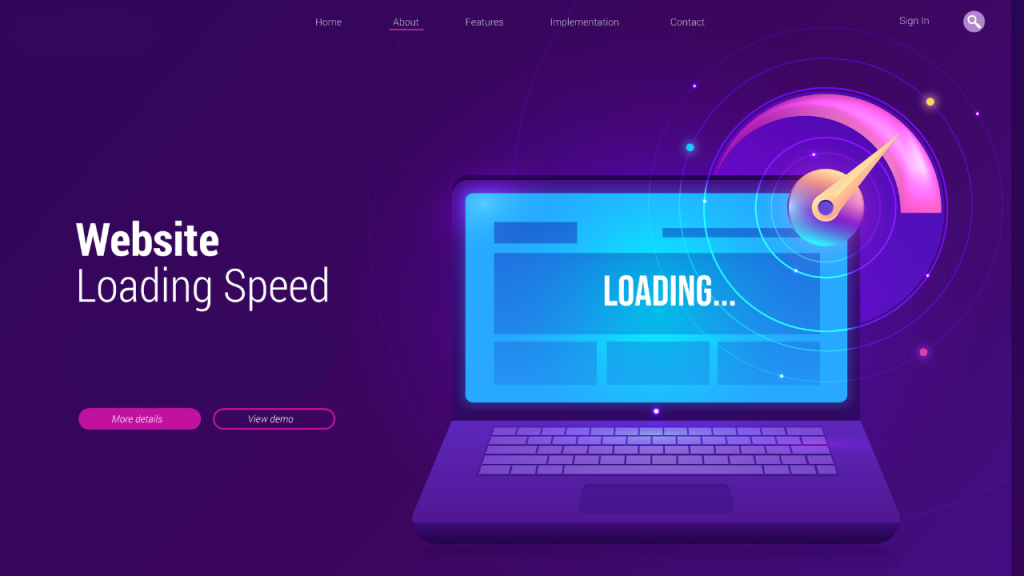Speed Matters: How a Slow Website is Costing You Customers

In this blog, you will learn why website speed is crucial for customer retention and conversion rates. We’ll explore the impact of slow-loading websites on search engine rankings and overall user experience. Today’s internet users are impatient; a slow website can lead to lost sales, missed opportunities, and a tarnished brand reputation. Discover how optimizing your website speed can lead to increased organic traffic, particularly for website development agencies in Bangalore.

The Statistics Behind Slow Websites
Understanding user behavior is key to comprehending the ramifications of slow websites. Statistics reveal that 53% of mobile users abandon sites that take longer than three seconds to load. This indicates that in our fast-paced digital world, a few seconds can mean the difference between keeping a customer and losing one. Potential customers are quick to make decisions, influenced primarily by their experiences. If they encounter delays, they are unlikely to engage further. As a result, the first impression made by your website is not just vital; it’s everything.
Moreover, the financial implications of a slow website are significant. According to research, businesses can lose up to $2.6 million in sales for delays of just one second during page loads. Imagine the losses your agency could face considering the highly competitive landscape in Bangalore. A direct correlation exists between website speed and revenue, where improving speed can lead to exponential gains in sales.
How Load Times Affect SEO Rankings
Search Engine Optimization (SEO) is a multifaceted field, but one pivotal element is page speed. Google has publicly confirmed that page speed is a ranking factor in their algorithms. This means that slower websites have a lesser chance of appearing on the first page of search results. If your website is not performing well in terms of speed, you can lose visibility and potentially valuable customers looking for your services. Therefore, optimizing your website speed is increasingly becoming a necessity rather than a mere best practice.
In a crowded market like that of Bangalore, the competitive edge gained from a quicker website can make a significant difference. Faster loading times can result in better user engagement, enhancing the likelihood of conversions and establishing your agency as a top contender among local businesses. Businesses that prioritize improving their load times typically outshine their slower counterparts.
User Experience and Customer Satisfaction
The role of user experience (UX) in website success cannot be overstated. Website speed directly affects how users perceive your brand. Slow-loading pages result in frustration, leading to a negative experience that influences their decision to stay or leave. Quick loading times create a seamless navigation experience, establishing a positive initial impression. If a visitor has to wait, you risk losing their interest—and revenue opportunities.
Furthermore, a slow website leads users to question a brand’s reliability. This skepticism affects customer loyalty; customers are less likely to return to a site that failed to meet their expectations the first time. Contrarily, fast, efficient websites foster trust, enhancing customer satisfaction and cultivating long-term relationships.
Tools and Techniques for Measuring Website Speed
Once you have your speed test results, the next step is analyzing and interpreting these findings. Regularly checking your website’s performance allows you to maintain a competitive edge and ensure a positive user experience. This practice equips you with information that influences your optimization strategies, directly benefiting your site’s speed over time.
Effective Strategies to Improve Website Speed
Optimizing your website involves various techniques that can significantly enhance loading times. Strategies like image compression, browser caching, and minimizing HTTP requests are all effective measures. These techniques can lead to improved performance without sacrificing quality. Each step taken to speed up your site pays dividends in terms of user experience and retention.
Additionally, investing in the right hosting services is paramount. A reliable hosting solution or Content Delivery Network (CDN) can greatly improve your site speed, particularly for local agencies in Bangalore. By choosing a hosting provider with solid infrastructure and capabilities, you can ensure that your website remains responsive and reliable.
The Long-Term Benefits of a Fast Website
Improving website speed has benefits that go beyond immediate gains. Sustaining organic traffic growth is one long-term advantage that translates into better conversion rates over time. A fast website appeals to visitors, increasing the likelihood of their engagement and return visits, positively impacting your revenue and brand recognition.
Moreover, a fast website contributes to a stronger online presence, enhancing your overall brand image. Customers associate speed with efficiency and quality, fostering loyalty and repeat business. This ripple effect creates a sustainable business model that thrives in today’s competitive online landscape.
Conclusion: Speed Matters – Take Action Now!
As we conclude, it’s essential to recognize the importance of website speed in your digital marketing strategy. The optimization of your website experience is not just a technical concern; it’s a fundamental aspect of your success. Companies should invest time and resources in speeding up their platforms to reap the myriad benefits of enhanced user experience, customer satisfaction, and increased conversions.
We invite you to share your thoughts on website speed and its impact on your business. What challenges have you faced regarding slow website speeds? Comment below with your experiences and any tips you’ve found useful in improving your website performance!




